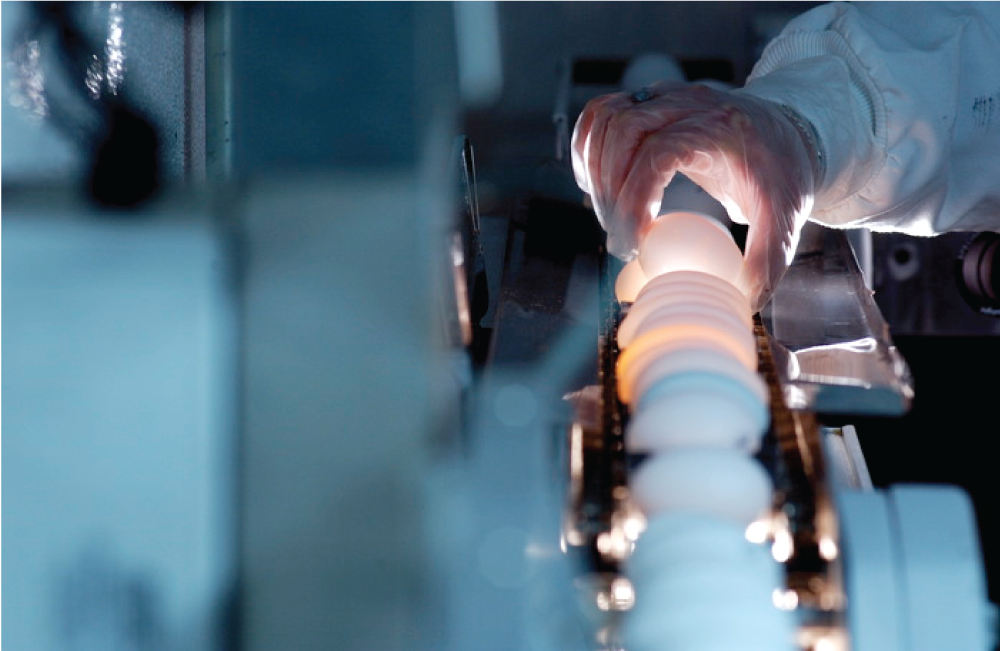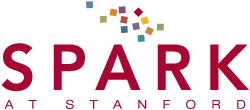Bridging The Gap

Nasal drops with chicken antibodies to prevent COVID-19 infection
November 24, 2020
In December 2019, a novel coronavirus hit the human population, one that the world had never seen before. Since then, scientists and researchers have been rapidly identifying and developing ways to fight the SARS-CoV-2 virus by both treating and preventing infections. Vaccines are already in late stage development and data look promising. But while we wait for a safe, effective vaccine to become available worldwide, we need every tool at our disposal to combat the COVID-19 pandemic.
SPARK at Stanford is working on a unique method that aims to prevent COVID-19 infection, using antibodies against SARS-CoV-2 developed in chickens and formulated into nasal drops. SPARK GLOBAL quickly mobilized resources to develop this low-tech, affordable and safe prophylaxis. Already the team has begun a Phase I clinical trial in 48 volunteers at Linear Clinical Research in Perth, Australia. If effective, the nasal drops could provide a cheap preventative measure that could be produced and distributed anywhere, even low-income countries.
Jon Cohen described the project in a recent article in Science Magazine, asking, can a nose-full of chicken antibodies ward off coronavirus infections? We at SPARK think they can. Cohen noted in his story, “scientists are becoming ever more creative in their search for other ways to protect people from” COVID-19.
The nasal drops serve as a passive vaccine instead of an active vaccine, and do not rely on a person’s immune system to mount a defense against SARS-CoV-2. Instead, antibodies in the drops catch the virus before it enters the body, by immobilizing SARS-CoV-2 and inhibiting viral binding to the ACE2 receptor at the nasal lining cells.
However, we’ve run into a problem. While SPARK has had enough funding to support the therapy’s development so far, we’re running out of money. We don’t have the backing of big pharmaceutical companies or millions in government spending, instead this is a project originating from academia and developed with the help of a unique international coalition. Therefore, SPARK has turned to crowdfunding to help support development of this important preventative measure in the fight against COVID-19.
The project is due to an incredible team effort from a unique international array of partners, including academics, biotech companies, the animal products industry, and the volunteer contributions of SPARK’s industry advisors. The effort is unusual in that unlike most vaccine development efforts, it is being driven by not-for-profit research institutions and volunteers with no expectation of being able to profit from it.
How did this clever project come about? Dr. Daria Mochly-Rosen was first introduced to the solution when she connected with Professor Michael Wallach, Professor and Associate Head of the School of Life Sciences at University of Technology, Sydney and co-director of SPARK Australia. The project is based on previous work by Dr. Wallach, who tested chicken antibodies as protection against influenza viruses. Dr. Wallach described his idea to Dr. Mochly-Rosen, and she immediately began contacting people to come aboard and help develop the project.
The team has already completed drug production using industry standards, and the Phase I safety trial began on October 8. Dr. Mochly-Rosen said, “We acted in record time thanks to more than 40 industry expert volunteers, including specialists on nasal drug delivery, clinical trial design, and regulatory affairs” offering their time.
The team is relying on the help of commercial entities, include Charles River Avian Vaccine Services, which is handling chicken immunization and antibody production. Charles River Laboratory services, toxicology labs, and Bravado Pharmaceuticals are formulating and producing the nasal drops. And one of the most important players is Linear Clinical Research, which is conducting the Phase I trial in Australia.
The nasal drops contain antibodies that develop in chickens immunized with the spike protein of the SARS-CoV-2 virus. The antibodies, called IgY, are passed to the hen’s eggs, extracted from the egg yolks, and formulated into the drops. When administered, the nasal drops could provide short term, immediate immunity against SARS-CoV-2.
The approach is “usually low-tech,” Cohen writes in Science. It “harnesses the ability of chickens to first make antibodies to an infection, and then lay them in an egg,” Tom Whipple wrote in the Times of London.
As Whipple noted, “’They are fantastic little factories,’ Daria Mochly-Rosen, from Stanford University, said. ‘And they are cheap, cheap, cheap.’”
IgY antibodies are particularly suitable for worldwide distribution, an essential aspect to effectively arrest a global pandemic. IgY production does not require expensive equipment or sophisticated procedures, therefore rapid mass production of IgY antibodies could occur locally anywhere in the world at a low cost, and available for distribution within six weeks.
The project has come so far through funding from grants including the Booz Allen Foundation and Stanford ChEM-H, by SPARK’s own contributions, and the volunteer work of many team members. However, the team needs additional funding in order to complete Phase I trials and to continue development, manufacturing and distribution. More importantly, the team needs strategic partners to implement this solution worldwide.
The Phase I trial is expected to be completed in December 2020. The team has already received feedback from FDA on a pivotal Phase II trial, which is expected to begin in early 2021.
Without funding, the therapy’s development will come to a grinding halt. SPARK is gratefully accepting contributions to the project. To learn more about the therapy and to support its development please click here.
